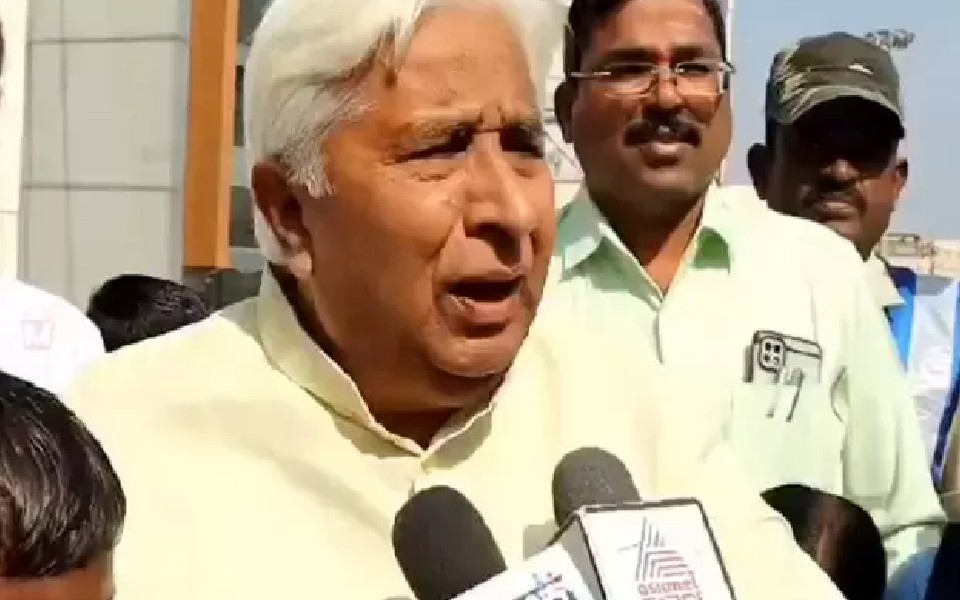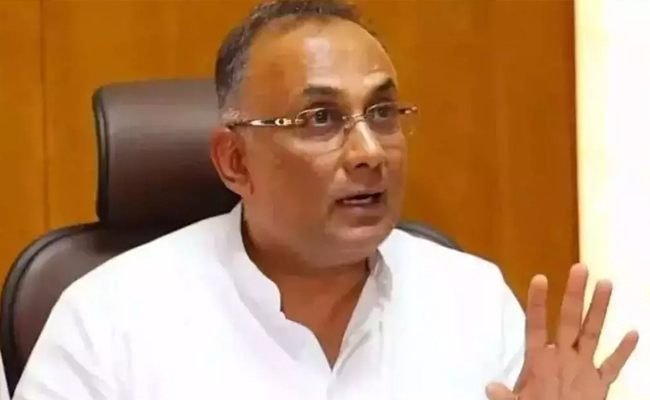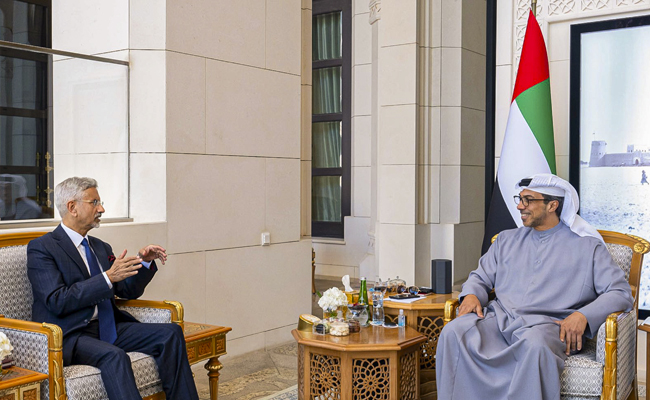Bengaluru, Jul 1: The Karnataka government on Monday opposed the three new criminal laws, which came into force on July 1, saying the Centre did not take its suggestions into consideration.
The three laws Bharatiya Nyaya Sanhita (BNS), Bharatiya Nagarika Suraksha Sanhita (BNSS) and Bharatiya Sakshya Adhiniyam (BSA) replacing Indian Penal Code, Criminal Procedure Code and Indian Evidence Act should have been implemented by the BJP government during its previous tenure itself and not now, Karnataka Law and Parliamentary Affairs Minister H K Patil said in a press conference
The Minister recalled that in 2023, Union Home Minister Amit Shah wrote to CM Siddaramaiah asking him to review and give suggestions on these laws.
Based on the Chief Minister’s direction, an expert committee was formed. The panel submitted a report to Siddaramaiah, which was forwarded to Shah.
ALSO READ: Karnataka police registers first case under new penal code
“We gave a total of 23 suggestions but the central government did not take any of it seriously. No opinion of ours is included in it. Now, the new codes have been duly implemented,” the Minister said.
“These three laws have been promulgated ignoring public opinion and the suggestion of the legal luminaries. Thus, our government opposes these three laws."
According to Patil, the new penal codes have more disadvantages than advantages along with some confusing amendments.
He also charged that the Centre has no moral rights to implement the three laws now.
“The three laws have been changed and new laws have been implemented. Any government that makes a law has the right to enforce it during its tenure. However, it is an unethical and politically absurd move to implement after the end of the government's tenure,” Patil said.
“The decision made by the cabinet of the previous government is not right to be implemented now. They had the right to enforce it in their previous term itself."
Patil noted that the replacement of these laws with the original ones is equivalent to the amendment of the Constitution and hence all precaution should be taken during the enforcement of this law.
To a query, the Minister said the state government is empowered to amend laws. There is an opportunity to make amendments exercising the constitutional rights.
Explaining the scope for amendment, Patil said, “Fasting in protest against the government action is an offense, but suicide is not a crime in this law. This is unfortunate. It is an insult to the freedom struggle. In this regard, we will bring an amendment on fasting.”
The Karnataka government had suggested to the Centre to amend the law to prosecute those who show disrespect to the father of the nation, national emblem and tricolour but it did not agree. In this regard, the state government has contemplated an amendment, the minister noted.
The new law gives investigative agencies unilateral and discretionary powers to prosecute individuals for the organised crime.
Further, he pointed to a provision for three years imprisonment and fine for hurting the national integrity.
The Act will be amended for cyber crime, hacking, financial crime, nuclear weapons secrecy and sabotage through technology, he explained.
The minister pointed out that under the new Act, police custody is allowed for 90 days, which is a long period. Hence, the amendment has to be made to minimise the duration of police custody, he added.
Let the Truth be known. If you read VB and like VB, please be a VB Supporter and Help us deliver the Truth to one and all.
New Delhi: A bill to set up a 13-member body to regulate institutions of higher education was introduced in the Lok Sabha on Monday.
Union Education Minister Dharmendra Pradhan introduced the Viksit Bharat Shiksha Adhishthan Bill, which seeks to establish an overarching higher education commission along with three councils for regulation, accreditation, and ensuring academic standards for universities and higher education institutions in India.
Meanwhile, the move drew strong opposition, with members warning that it could weaken institutional autonomy and result in excessive centralisation of higher education in India.
The Viksit Bharat Shiksha Adhishthan Bill, 2025, earlier known as the Higher Education Council of India (HECI) Bill, has been introduced in line with the National Education Policy (NEP) 2020.
The proposed legislation seeks to merge three existing regulatory bodies, the University Grants Commission (UGC), the All India Council for Technical Education (AICTE), and the National Council for Teacher Education (NCTE), into a single unified body called the Viksit Bharat Shiksha Adhishthan.
At present, the UGC regulates non-technical higher education institutions, the AICTE oversees technical education, and the NCTE governs teacher education in India.
Under the proposed framework, the new commission will function through three separate councils responsible for regulation, accreditation, and the maintenance of academic standards across universities and higher education institutions in the country.
According to the Bill, the present challenges faced by higher educational institutions due to the multiplicity of regulators having non-harmonised regulatory approval protocols will be done away with.
The higher education commission, which will be headed by a chairperson appointed by the President of India, will cover all central universities and colleges under it, institutes of national importance functioning under the administrative purview of the Ministry of Education, including IITs, NITs, IISc, IISERs, IIMs, and IIITs.
At present, IITs and IIMs are not regulated by the University Grants Commission (UGC).
Government to refer bill to JPC; Oppn slams it
The government has expressed its willingness to refer it to a joint committee after several members of the Lok Sabha expressed strong opposition to the Bill, stating that they were not given time to study its provisions.
Responding to the opposition, Parliamentary Affairs Minister Kiren Rijiju said the government intends to refer the Bill to a Joint Parliamentary Committee (JPC) for detailed examination.
Congress Lok Sabha MP Manish Tewari warned that the Bill could result in “excessive centralisation” of higher education. He argued that the proposed law violates the constitutional division of legislative powers between the Union and the states.
According to him, the Bill goes beyond setting academic standards and intrudes into areas such as administration, affiliation, and the establishment and closure of university campuses. These matters, he said, fall under Entry 25 of the Concurrent List and Entry 32 of the State List, which cover the incorporation and regulation of state universities.
Tewari further stated that the Bill suffers from “excessive delegation of legislative power” to the proposed commission. He pointed out that crucial aspects such as accreditation frameworks, degree-granting powers, penalties, institutional autonomy, and even the supersession of institutions are left to be decided through rules, regulations, and executive directions. He argued that this amounts to a violation of established constitutional principles governing delegated legislation.
Under the Bill, the regulatory council will have the power to impose heavy penalties on higher education institutions for violating provisions of the Act or related rules. Penalties range from ₹10 lakh to ₹75 lakh for repeated violations, while establishing an institution without approval from the commission or the state government could attract a fine of up to ₹2 crore.
Concerns were also raised by members from southern states over the Hindi nomenclature of the Bill. N.K. Premachandran, an MP from the Revolutionary Socialist Party representing Kollam in Kerala, said even the name of the Bill was difficult to pronounce.
He pointed out that under Article 348 of the Constitution, the text of any Bill introduced in Parliament must be in English unless Parliament decides otherwise.
DMK MP T.M. Selvaganapathy also criticised the government for naming laws and schemes only in Hindi. He said the Constitution clearly mandates that the nomenclature of a Bill should be in English so that citizens across the country can understand its intent.
Congress MP S. Jothimani from Tamil Nadu’s Karur constituency described the Bill as another attempt to impose Hindi and termed it “an attack on federalism.”



_vb_22.jpeg)

